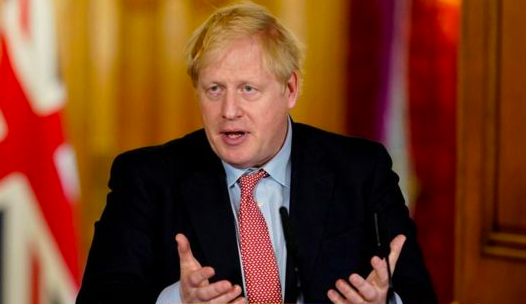Industry strategic consultancy Regulus Partners looks at the government u-turn to postpone the reopening of casinos in England, the growing support for a ban on online gambling and the upcoming publication of Social Market Foundation’s report on the Gambling Act 2005.
UK: regulation – new poll finds growing support for online gambling ban
The polling firm Survation this week released results from a survey indicating that more people in Britain now favour a complete ban of online gambling. The latest in a series of online surveys commissioned by the campaign group, Clean Up Gambling found that 40% of survey respondents agreed with the statement that “online gambling should be banned entirely” while 39% disagreed. Notional support for prohibition was up 5ppts against survey responses from June (when 34% supported a ban and 40% were opposed).
It is questionable how much store we should put by such surveys (regardless of who commissions them), given small sample sizes and the self-selection nature of response. The fact that results are cherry-picked for disclosure – nine questions were asked in this latest survey but results provided for just one (selective disclosure has been the name of the game for the rash of surveys carried out this year). Moreover, there is also the question of “so what?”. Liberal democracies should not ban things solely because they are unpopular – those who believe otherwise probably need to revisit their diversity training. As Professor Peter Collins has observed: “the fact that the majority of people want the government to do something does not necessarily mean that the government should do it”.
Moreover, it is very easy for survey respondents to endorse policies that are likely to affect others but not themselves (an earlier poll found that 19% of respondents thought that deposit limits for online gambling should be capped at £10 per week; 41% thought that no-one should be allowed to gamble more than £24.99 per week). Similarly, it seems plausible that those who do not consume alcohol might favour low limits on wine and beer purchasing; those with no interest in literature may be far more comfortable than others with censorship.
Yet while the Survation poll has no scientific value and little policy relevance, it should not be disregarded. For all the talk of a powerful gambling lobby, the online sector appears to have very few friends in Parliament, almost no traction with the national news media and little visible consumer advocacy. The ‘prohibitionist’ tag is bandied around all too readily in these emotionally charged times (as is the “predatory” label) but that does not mean that there is no movement to prohibition. There is and it is quietly growing in influence. Things like the Survation poll should not matter…but ours is not a world governed by rational decisions. It is worth remembering that between 5-9m gamble online every year in GB, excluding lottery (we prefer the latter figure and believe some sources to understate participation) – that is a lot of people to dictate behaviour to and a lot of people to listen to if even a proportion were to find a voice.
UK: regulation – Come on Feel the Noyes
The publication next week of the Social Market Foundation’s report on the Gambling Act 2005 is expected to provide an important coda to a summer of policy reviews. Billed as a pre-review report, it is deliberately designed to feed into the Government’s assessment of legislative fitness expected to kick off in the autumn.
The SMF report’s lead author, Dr James Noyes has already left a distinct imprimatur on the policy debate, having spearheaded the Labour Party’s review of gambling under former Deputy Leader, Tom Watson. It was this process that first gave life to many of the ideas that have come to dominate discourse – including proposals for a gambling ombudsman and the need for a more detailed legislative framework online products.
Noyes cuts a thoughtful and precise figure unusual in the public policy debate on gambling – and after a summer of grandstanding and dogma, we may hope for something a little more measured and cerebral.
UK: casinos – “On and off and on (and off) again”; casinos return to Status Quo ante
The British Government has a new slogan in the fight against the Coronavirus – “hands, face, space – get a test”; but perhaps “knees, jerk, what the f*** – get a grip” might be a more fitting maxim after reopening plans for casinos (along with bowling alleys and limited attendance sporting events, including Glorious Goodwood) were scrapped at 12 hours’ notice.
The reason for excluding casinos from England’s 4th July wave of re-openings (when pubs, restaurants, bingo clubs and arcades were given the green light to start up again) was never satisfactorily explained; and so it is with a latest bout of political flip-floppery that would put the Heathrow Airport Havaianas concession in the shade. Operators must wait until 15th August for further news with no certainty about what will happen even then. After two false starts, it is likely that any subsequent announcements on reopening will be treated with considerable scepticism.
While the Government and its public health advisers dither, the economy burns. Genting UK, the country’s second largest casino operator has announced the permanent closure of two (possibly three) of its venues and said that as many as 1,600 jobs could be at risk. The high-end Ritz Casino in London’s Mayfair has also dealt its last hand and the Century casino in Bath, which opened just two years ago (one of the new generation of casino licences that so vexed the Daily Mail once upon a time) has folded for good (a $16.5m write-off). For a sector already bleeding cash, the cost of this latest u-turn will be substantial and may trigger further negative events. Venues that had been restocked and prepared for launch must remain dark; employees who had finally returned from furlough go back to economic inactivity and an uncertain future (leaving open questions about who is now responsible for paying them).
The casino sector was not in brilliant shape going into lockdown – the consequence of being stuck with analogue legislation in a digital age, high rates of taxation (for London casinos at least) and increasing regulatory heavy-handedness. A requirement to take tough decisions goes with the territory of running the country and it is unlikely that ministers will lose too much sleep over the fate of those working in casinos, bowling alleys at racecourse and other marginalised businesses. It does at least owe them an apology; and perhaps a willingness to treat them with a greater degree of respect in the future.
International: horseracing – rough justice?
Two controversial disciplinary decisions on careless riding from opposite ends of the globe thrust the concept back into the public spotlight: in Australia, Hugh Bowman received a six week suspension for an incident at Rosehill which caused the fatal injury of a horse and the serious injury of fellow jockey Andrew Adkins. The general public consensus was that the ban was too lenient. A similar event took place at Yarmouth, where Robert Havlin’s mount veered sideways on the run in, colliding with another runner and almost causing a pile up (fortunately there were no casualties). The raceday stewards handed Havlin a ten day ban. However, this has since been over-turned by the BHA’s independent disciplinary panel; a result which has angered many of the sport’s followers, even if participants have generally remained tight lipped over the incident.
These sorts of incidents, and the responses from the regulator, highlight the need for adapt in order for the sport to remain relevant (this applies to all sports) and be safely enjoyed by participants from grass roots to elite level. By nature, sport requires some form of risk taking – and this is often critical to the enjoyment of both participants and spectators. Judging the fine line of actions that could success or failure for a competitor can, in some cases, have a severely negative impact for other competitors, including the chance of causing serious injury or death. While a duty of care is implied within racing and other sports, it is rarely written into the rules or discussed from an early educational point of view. However, if the sport is to retain support both of fans and participants (and avoid costly lawsuits), it will need to ensure appropriate action is taken against conduct that could increasingly be seen as dangerous to the point of negligence on the course/playing field.









